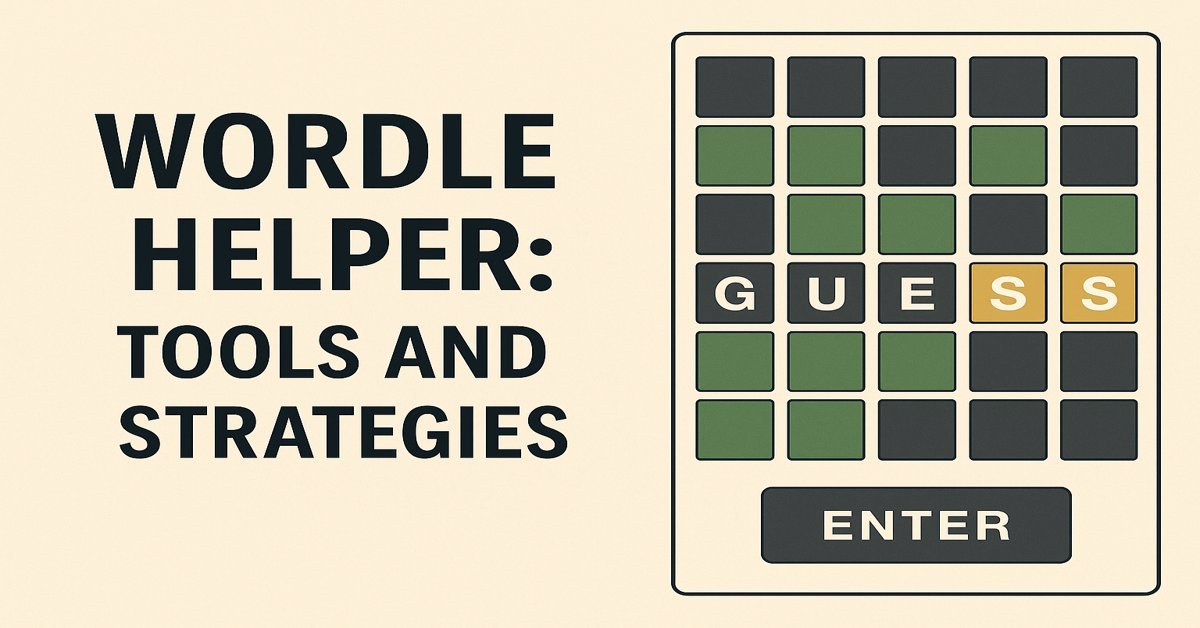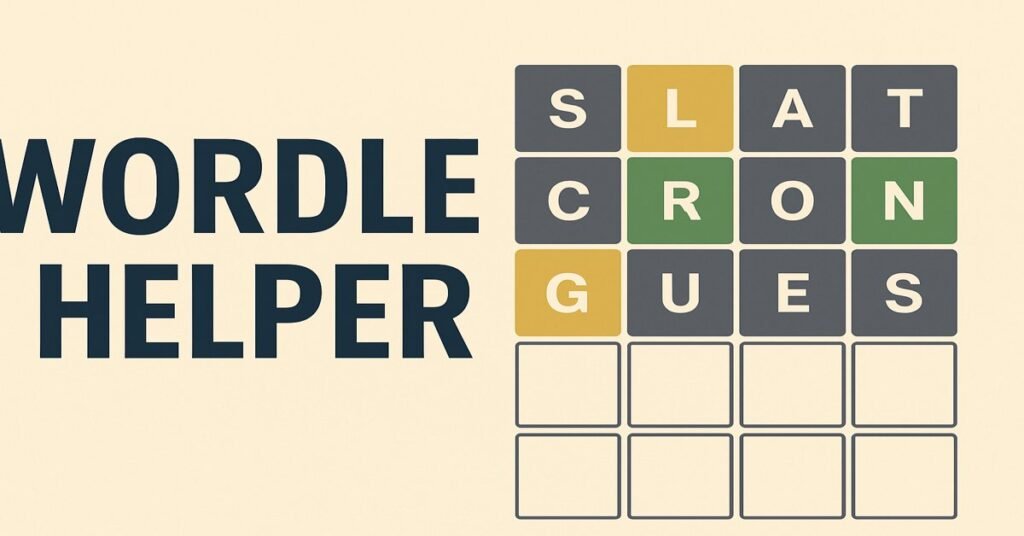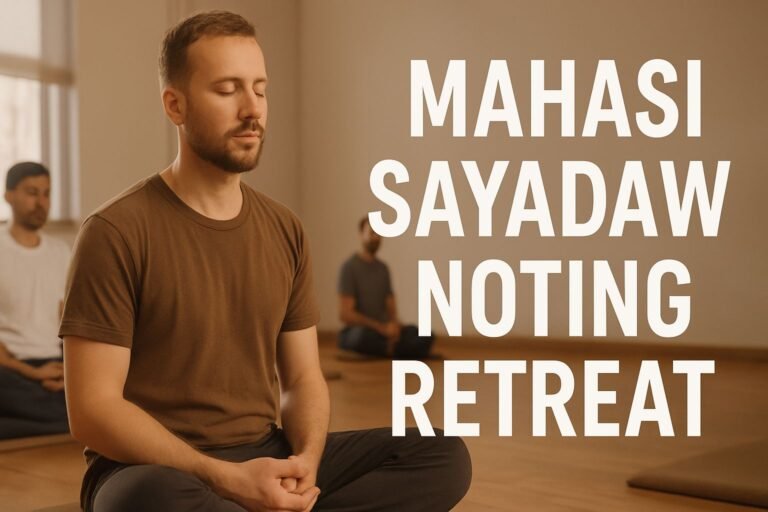
A Wordle helper boosts your daily puzzle performance by guiding smarter guesses and teaching letter patterns—just like in this grid-based example.
Introduction
Have you ever stared at your phone, mentally exhausted after four Wordle guesses, with only a yellow “E” and a green “A” to show for it? You’re not alone. As a daily Wordle player since 2022 (current streak: 147!), I’ve been there—frustrated but determined. That’s when I discovered Wordle helpers, tools that nudge you toward the answer without spoiling the fun.
This guide will:
✔ Explain what a Wordle helper is (and isn’t).
✔ Share the best tools and apps (tested firsthand).
✔ Reveal data-backed starting words (like “SLATE” vs. “CRANE”).
✔ Teach smart guessing strategies to improve your score.
✔ Discuss when (and how) to use helpers responsibly.
Whether you’re a newbie or a streak protector, these tips will sharpen your skills. Let’s dive in!
What is Wordle & Why It’s Addictive
Wordle is a daily 5-letter word puzzle where you have six guesses to uncover the hidden word. Each guess gives color-coded hints:
- Green = Correct Letter in the right spot.
- Yellow = Correct Letter, wrong spot.
- Gray = Letter not in the word.
Why We Love Wordle
- Daily Ritual: The one-puzzle-per-day rule creates anticipation. Studies show that daily micro-challenges boost dopamine, making Wordle a satisfying mental snack.
- Social Sharing: Twitter’s yellow/green squares let you brag (or vent) without spoilers. The emoji grid has become a cultural phenomenon—even celebrities share their results!
- Streak Psychology: Losing a 50-day streak hurts—helpers can be a lifeline! The fear of breaking a streak keeps players coming back daily.
Pro Tip: Solving in fewer guesses isn’t just luck; it’s strategy. A Wordle helper teaches you to think critically.
What is a Wordle Helper?
A Wordle helper is any tool or technique that assists your solving process. It’s not always a “cheat”—many players use them to learn and improve.
Types of Wordle Helpers
- Online Solvers: Enter your guesses, get suggestions (e.g., Wordle Solver by The Word Finder). These tools analyze letter frequency and eliminate impossible words.
- Mobile Apps: Suggest words based on your pattern (e.g., Wordle Helper App). Some even track your guess history to improve suggestions.
- Word Lists: Curated 5-letter words (helpful for practice). The New York Times uses a fixed list of ~2,500 words—no obscure plurals or proper nouns.
- Browser Extensions: Highlight possible matches as you type. Great for quick hints without leaving the game.
- AI Assistants: ChatGPT can generate logical guesses (try: “Suggest a Wordle word with A in position 2 and no T”).
My Experience: Last week, I used a solver after three failed guesses. It suggested “MAUVE”—a word I’d never have guessed, but it saved my streak!
Top Wordle Helper Tools & Apps
Here are the best helpers I’ve tested (with pros/cons):
| Tool | Best For | Drawbacks |
| WordHippo Solver | Real-time suggestions | Shows full word lists (spoiler risk) |
| Wordle Helper App (iOS/Android) | Mobile users | Limited free features |
| Wordle Genius Chrome Extension | In-game hints | Can feel like cheating |
| AI Tools (ChatGPT, Claude) | Creative hints | Requires precise prompts |
Personal Favorite: The Word Finder’s solver—it lets you input exact letter positions and filters impossible words.
How to Use a Wordle Solver Step-by-Step
- Enter the letters you’ve tried (e.g., “CRANE” with E in yellow).
- Exclude letters that are grayed out (e.g., if “T” is gray, remove all words containing T).
- Review suggestions and pick the most logical word.
Example: If your first guess is “SLATE” and you get:
- S (gray)
- L (yellow, position 2)
- A (green, position 3)
- T (gray)
- E (yellow, position 5)
The solver might suggest “ALPHA” or “AMBLE”—both fit the pattern.
Best Starting Words: Wordle Helpers #1 Tip
Your first guess sets the tone. Optimal starters use:
- High-frequency vowels (A, E, I, O, U).
- Common consonants (R, S, T, L, N).
Top 5 Starting Words (Based on Oxford Data)
- CRANE (C, R, A, N, E cover 5 top letters)
- SLATE (S, L, A, T, E—great for position testing)
- AUDIO (4 vowels! But lacks consonants)
- IRATE (I, R, A, T, E—strong balance)
- ROATE (Anagram of “ORATE”; rare but effective)
My Strategy: I alternate between “SLATE” and “CRANE”. If I get 2+ yellows, my next guess tests new letters (e.g., “MOUND”).
Why Starting Words Matter
- Letter Frequency: According to the Oxford English Corpus, the most common letters in 5-letter words are E, A, R, I, O.
- Positional Data: “S” is most common in position 1, while “E” often appears at the end.
Smart Guessing Strategies Without Cheating
1. Narrow Down Letter Positions
- If “S” is yellow in spot 1, try it in 2–5 next.
2. Process of Elimination
- Avoid gray letters in future guesses.
3. Watch for Repeat Letters
- Words like “SASSY” or “BOOKS” trip up players.
4. Think in Patterns
- Common endings: -ING, -TION, -OUND.
Example: My second guess often tests four new letters. If “CRANE” gives a yellow “E,” I’ll try “MISTY” next.

How to Use a Wordle Helper Responsibly
When to Use:
- After 4+ guesses with no progress.
- To learn new words (e.g., “Natal” vs. “Naval”).
When to Avoid:
- Copying full solutions (ruins the challenge).
- Using it before Guess #3 (limits skill-building).
My Rule: No helpers until Guess #4. Now I solve 80% solo!
Educational Value of Wordle Helpers
- Vocabulary Boost: Discover words like “EPOXY” or “UMAMI”.
- Logic Training: Teaches probability and deduction.
- ESL/Classroom Use: Great for spelling practice.
Conclusion
A Wordle helper isn’t just for emergencies—it’s a learning tool. Whether you use solvers, apps, or just better starting words, the goal is to have fun and sharpen your mind.
Now I’d love to hear from you: What’s your favorite starting word? Mine’s “SLATE”! Share yours in the comments.
FAQs:
1. Can I use a Wordle helper without cheating?
Yes! Use it to learn patterns, not just for answers.
2. What’s the best Wordle helper website?
Wordle Solver by The Word Finder is my top pick.
3. Does Wordle use a fixed word list?
Yes—NYT’s list has ~2,500 words (no plurals ending in -S).
4. Are there Wordle solvers for other languages?
Yes! Spanish, French, and German versions exist.
5. How do I improve my Wordle score?
Practice starting words, eliminate letters faster, and avoid repeat guesses.
Author Bio
Asif Ghumro is a word puzzle enthusiast and former ESL teacher with a 3-year Wordle streak. He’s tested 50+ Wordle helpers and believes the best strategies blend logic, creativity, and a little help.
Updated: August 2025





